Are Landlords Responsible For Soundproofing?
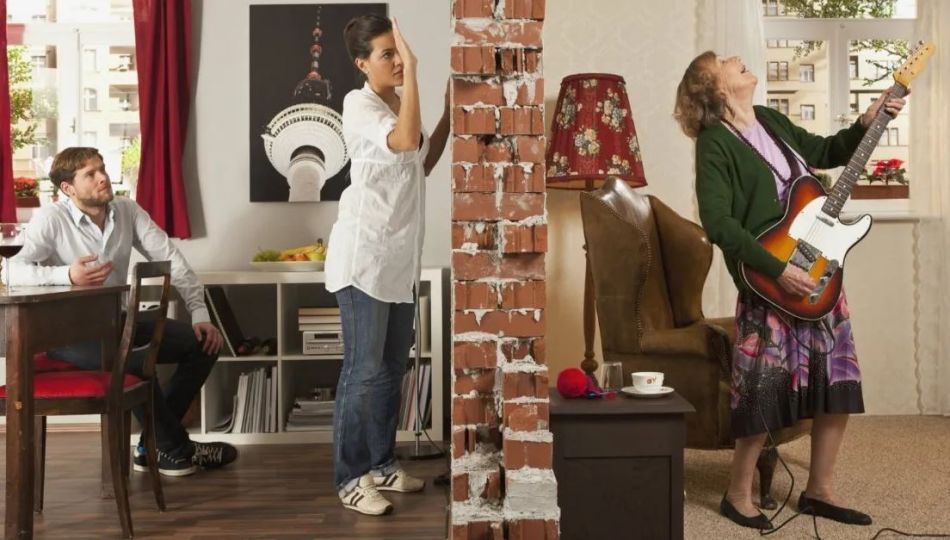
Living in a noisy apartment can be a frustrating experience. This is especially true if you have loud neighbors or constant noise from the street outside. Although it is difficult to find a well-soundproofed apartment today, it is still possible. For that reason, many tenants wonder if their landlord is responsible for soundproofing their apartment or if they must take matters into their own hands.
The answer to this question is not always straightforward and may depend on various factors. In this blog post, we will explore the responsibilities of landlords when it comes to soundproofing and provide guidance for tenants dealing with noise issues in their rental properties. So, let’s start!
Are Landlords Responsible for Soundproofing? Landlords are not obligated to provide soundproofing in rental properties. However, tenants have the right to a quiet environment, as many tenancy laws stipulate. Although the law typically doesn’t require landlords to provide soundproofing, some may add it and include the cost in the rental fee.
We all want peace in our homes and don’t want to be disturbed. As more and more people rent apartments, it is very important to know whether the landlord is responsible for soundproofing our apartment. Below we will go through this topic in more detail and explain why it is important.
Tenants Right To Quiet Enjoyment
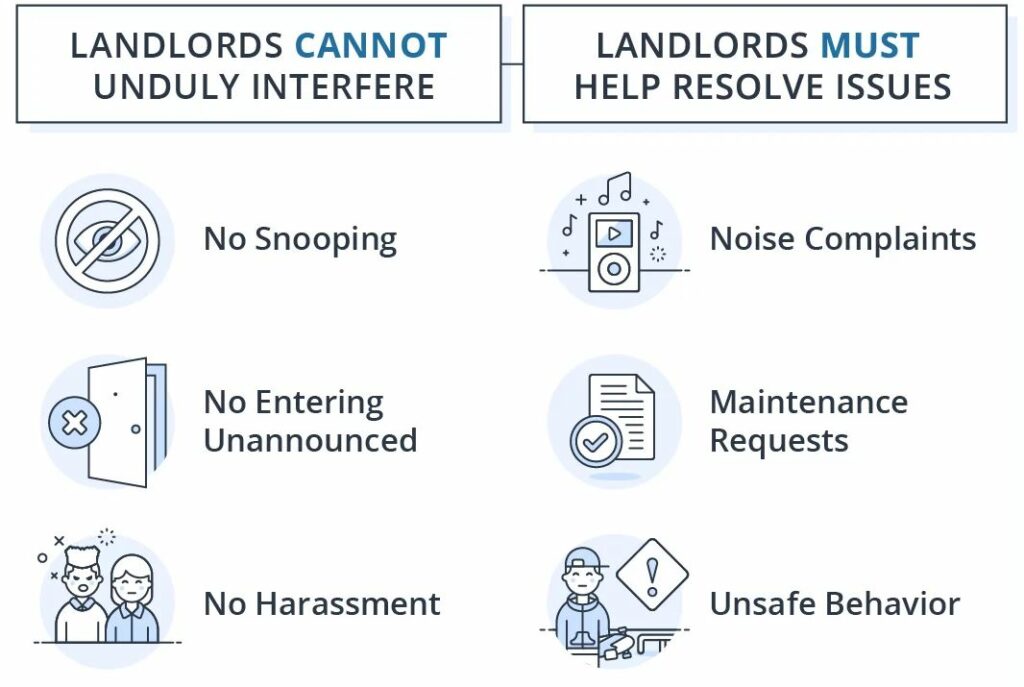
One of the primary concerns when it comes to a landlord’s responsibility for soundproofing is a tenant’s right to quiet enjoyment. The Quiet Enjoyment Law guarantees that tenants have the right to use and enjoy their rented property without being disturbed.
However, it is NOT specific about what constitutes acceptable noise levels in shared properties, so this is typically outlined in the lease agreement. While normal noise, such as footsteps or conversations, cannot be completely eliminated, excessive noise, such as loud music, can be addressed through noise complaints.
Does this mean that landlords are responsible for soundproofing an apartment?
In such cases, landlords must take action to address the issue, or they will lose tenants. Many of us want a peaceful environment. In some cases, soundproofing the property can be a good investment and solution to contain noise levels and maintain a peaceful environment among tenants.
Related Article: Can Your Neighbors Hear You Through Concrete Walls?
Advantages Of Soundproofing Rental Properties
While soundproofing is not a legal requirement for landlords, investing in it can benefit both the landlord and tenants. Creating a peaceful and quiet environment can make a rental property more desirable and, at the same time, increase its value. By soundproofing your property, you can have the following benefits:
1. Energy Cost Savings

In addition to reducing noise levels, adding soundproofing to your apartment will also give you better thermal insulation. This will minimize the heat that escapes from your apartment. That way, you can lower your energy bills.
Also, the HVAC system doesn’t have to be used often, which means it will last longer, providing long-term savings on utility bills. With soundproofing materials, you get the added benefit of a comfortable, energy-efficient living space.
Related Article: 14 Ways to Annoy Noisy Upstairs Neighbors Legally
2. Enhancing Tenant Comfort

Another benefit is that landlords can significantly improve the quality of life for their tenants. Soundproofing enables tenants to enjoy a noise-free apartment where they can work and sleep undisturbed. This, in turn, can lead to greater tenant satisfaction, which is beneficial for landlords in the long run.
3. Prevent Noise Complaints

Noise complaints from tenants can be a hassle for landlords to deal with, and it can lead to losing tenants or even legal trouble. One of the best ways to avoid this issue is to invest in soundproofing your rental property. This investment will definitely pay off quickly.
This can keep the noise contained in each unit and prevent tenants from disturbing each other. Additionally, you’ll avoid frequent calls from your neighbors.
Related Article: Ceiling Fan Making Clicking Noise: 5 Ways To Fix It
4. A Better Offer Than the Competition

Soundproofing can give you a competitive edge in the rental market. By offering quality soundproofing, you can appeal to prospective tenants looking for a peaceful living environment.
The privacy and tranquility provided by soundproofing can make a property the preferred choice for tenants who spend much time at home. This can lead to a higher fill rate and reduced vacancy periods, ultimately increasing your rental income.
Find Out If The Neighbor That Is Making The Noise Is Aware
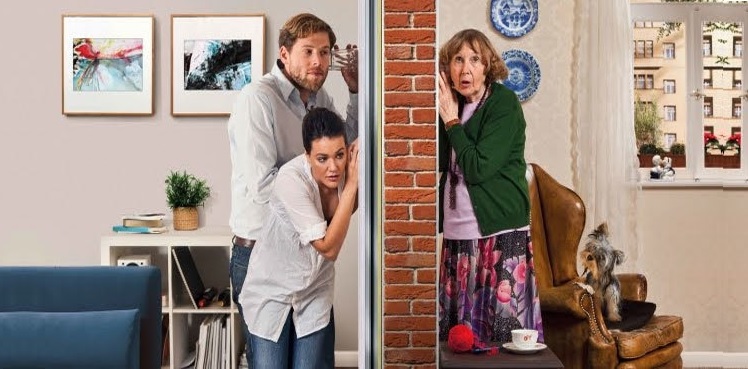
It is not uncommon for tenants to be hesitant to confront their neighbors about noise disturbances. However, the neighbor that is making the noise may not even realize that their actions are causing a disturbance to others.
As a landlord, assessing the situation and determining whether the tenant has attempted to address the issue with their neighbor directly is important.
We advise you to approach the situation with a friendly demeanor and avoid involving others, such as the landlord, which may complicate the matter and cause the neighbor making the noise to become defensive.
Instead, it may be beneficial to encourage the tenant to speak directly with their neighbor about the disturbance, as this approach is more likely to result in a positive outcome for both parties involved.
Related Article: Does Putting A Blanket Under A Door Reduce Sound?
Ways To Soundproof An Apartment For Landlords
After we have listed all the benefits you get with soundproofing the apartment, we will go through a few ways you can do it without spending much money. Let’s start:
Mineral Wool
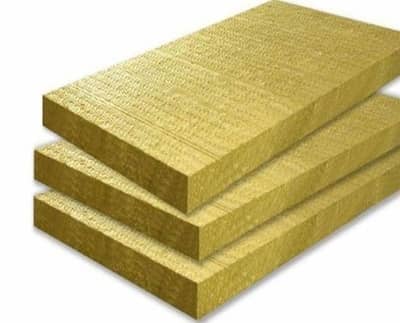
Mineral wool is a popular type of insulation material that is composed of rock-based mineral fibers. The raw materials used to make mineral wool are usually recycled slag and basalt rock, which are melted and then turned into fibers. This process produces insulation that is used for structural, thermal, and acoustic purposes.
Mineral wool is mostly used for sound insulation because it absorbs soundwaves. Its compression into rolls is also a reason for its widespread use in soundproofing. In addition to soundproofing, mineral wool has a higher density compared to fiberglass, making it more effective at blocking soundwaves.
Flooring Underlayment
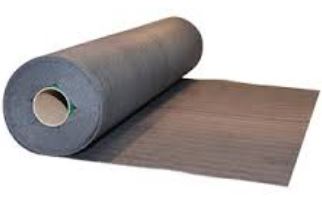
> Buy Flooring Underlayment HERE <
Flooring underlayment is a great way to soundproof your apartment without breaking the bank. Don’t forget to add the flooring underlayment cost when renovating your floors, which can help reduce impact and airborne noise. Investing in a good flooring underlayment can make a significant difference in reducing noise levels in your home.
Fiberglass Insulation
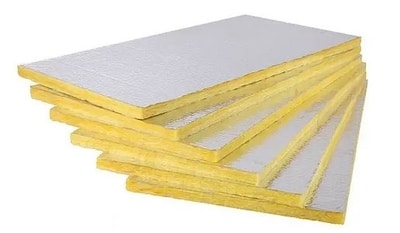
> Buy Fiberglass Insulation HERE <
Fiberglass is a popular material for soundproofing because of its highly effective insulation properties. It can prevent soundwaves from entering the room and block sounds from leaving the room. Apart from this, it also helps regulate temperature, making it an ideal choice for insulation.
One of the significant advantages of fiberglass is its ability to insulate ceilings, walls, and floors. It consists of small glass particles. Fiberglass panels are a common choice for wall insulation, providing acoustic and thermal insulation.
Here is an interesting video that explains how to soundproof a room from below:
Related Article: Can A False Ceiling Reduce Noise? Explained
How To Solve Excessive Noise As a Tenant?
If you do not have the option of soundproofing the apartment, then you should consider other options to eliminate the loud noise. For everyone who is dealing with excessive noise in an apartment, there are steps you can take to address the problem. Try the following things:
- Talk to Your Neighbor. We recommend that you do this first. Try to resolve the situation by talking. Your neighbor may not realize that they are causing you trouble. If you’re uncomfortable approaching your neighbor directly, then feel free to ask your landlord to intervene.
- Record the Noise. The second thing is to try to record the noise that your neighbor is creating. If possible, record everything. Be sure to explain why the noise is problematic for you.
- Soundproof An Apartment. If the previous two things did not show results, feel free to ask your landlord to invest some money and soundproof an apartment.
- Consider moving out. After you have tried everything, and the loud noise still gives you problems, you may need to break a lease and look for a new home. Finding a new apartment is not a problem today because the offer is quite large.
Easy Soundproofing Solutions For Tenants
Landlords are not required to soundproof their apartments, but tenants can still take some steps to improve their living situation without investing money. If you are a tenant, there are a variety of cost-effective materials you can use to soundproof your space. Here is what you can do:
- Furniture: Use soft, plush furniture like couches, recliners, and pillows to absorb noise. Placing these items on the shared walls can help block noise.
- Soft textiles: To absorb sound, hang up blankets, tapestries, or drapes on walls and ceilings. The thicker and heavier the fabric, it will work better as a sound barrier.
- Carpets and rugs: Laying down thick carpets or rugs on your floors can help block noise from bouncing off hard surfaces. You can also use decorative rugs as wall hangings to absorb sound.
FAQ: People Also Ask
Who is responsible for soundproofing between floors?
While landlords are not legally obligated to soundproof between floors, it can benefit everyone involved by keeping tenants satisfied and, at the same time, avoiding noise complaints. Implementing soundproofing measures can create a more peaceful environment and improve the overall living experience for tenants.
Does spray foam act as a sound barrier?
Spray foam insulation provides good soundproofing capabilities by filling in every crevice of the interior of a wall, unlike standard fiberglass insulation. It blocks out noise from outside or other rooms, creating a more peaceful and comfortable environment. Spray foam insulation offers energy efficiency benefits and can prevent air leaks and moisture infiltration.
Final Thoughts
As we see in this article, landlords are not typically responsible for soundproofing their properties. However, if a tenant is experiencing loud noise disturbances, they can complain to the landlord. In some cases, landlords may consider soundproofing their properties to avoid complaints and maintain positive tenant relationships.
If you are dealing with a loud noise, you can do a few things. Firstly, review your rental agreement and seek clarification on the landlord’s responsibilities regarding noise disturbances. You could also approach your landlord and request that they take measures to soundproof the apartment.
Alternatively, you could explore the option of soundproofing the space yourself or just move out if the noise disturbance is unbearable. Finally, you can move out and look for a new apartment that suits you better.
